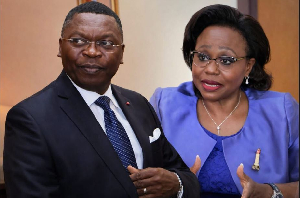ECCAS presented its activities being carried out to promote local development and harmonious relations between the States during a conference on Wednesday.
ECCAS has decided to focus on making Central Africa region an area of peace, solidarity, balanced development and free movement of persons, goods and services. To achieve this, the institution has been trying since 2007 to develop a strategy structured around three axes: peace, security and stability, infrastructure and the environment.
The Secretary-General of ECCAS, Ahamad Allam-Mi, invited African development actors and partners in development during the day of partnership and integration Wednesday, in the Congress Hall in Yaoundé.
The event was punctuated by four main presentations of the development programmes of the European Union in the region, those of the cooperation of the international organization of la francophonie (Oif), the office programs under ECCAS as well as those of its integrative programs such as trade and industry, infrastructure, the environment and agriculture and rural development.
With a population of 145 million people spread over an area of 6,640 Km2 ECCAS is a favorable area for investment and business in general. From information gathered on the spot, with almost 120 billion dollar export in 2013, the region represented an average of nearly 20 per cent of African exports. In addition, its 5% growth rate achieved for more than a decade, made her one of the most dynamic of the African continent.
Participants were able to learn that ECCAS and the Oif contributors among others, strived for the maintenance of peace, in planning for the protection of the environment and the facilitation of trade between States.
Technical assistance programme Hub-and-Spokes of the Oif, the Coleacp for the European Union are the main tools for implementing the strategies of these institutions. While appreciating these initiatives, economic actors in Chad, the Central African Republic and Gabon hoped that the ECCAS support benefit local initiatives in their countries through the implementation of a strategy promoting a better flow of products and the movement of goods and people.
Infos Business of Thursday, 11 December 2014
Source: Cameroon Tribune












